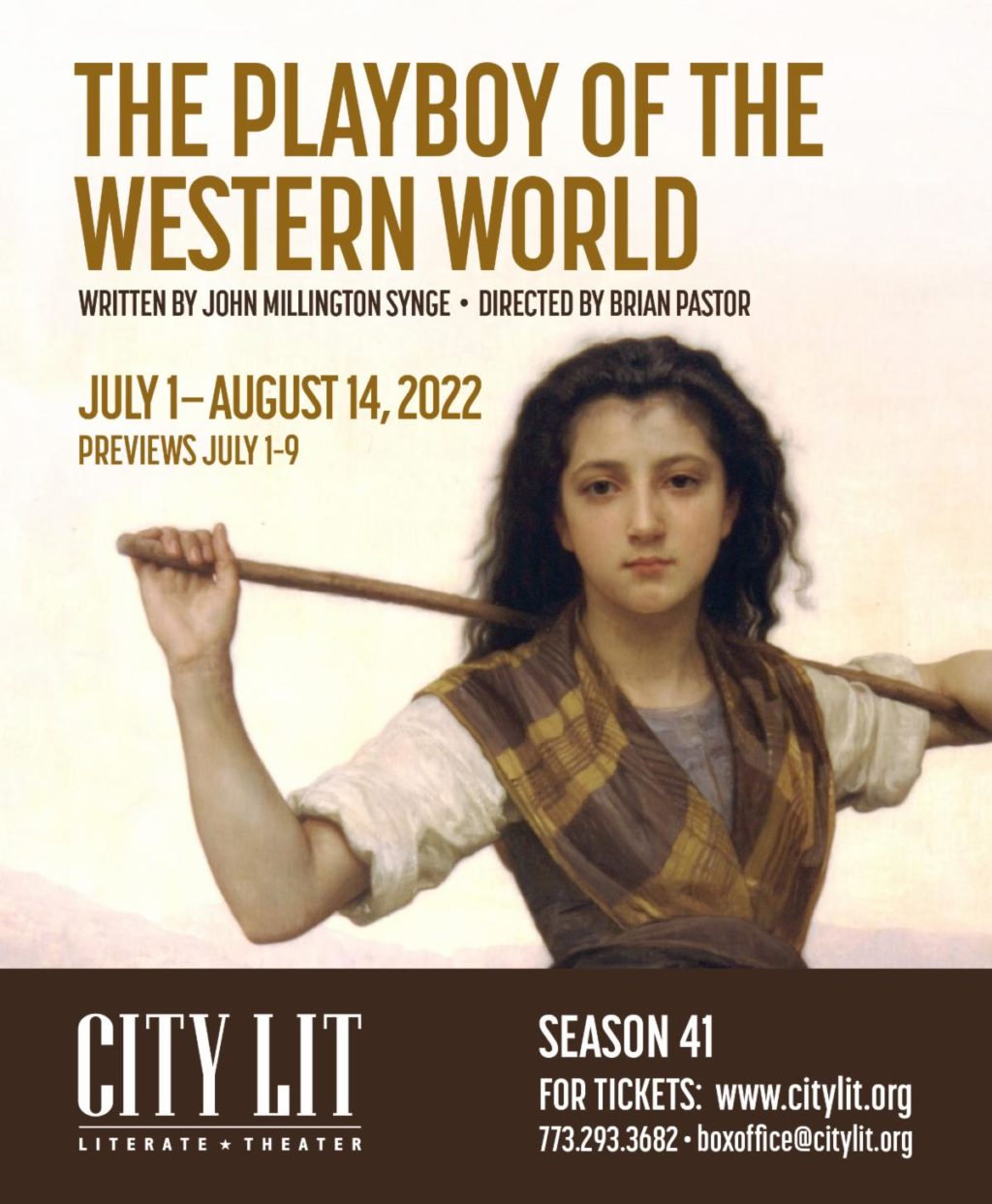
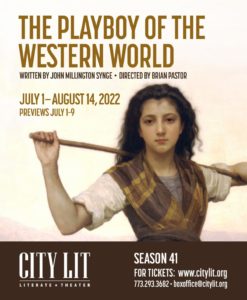 [rating=3]“Playboy of the Western World” is more of a historical piece than anything else. If you take an interest in a script that is much too old-fashioned and if you have the will and ability to decipher heavy Irish brogue and its attendant vocabulary, then you will enjoy the show. Written in 1907 by John Millington Synge, this giddy yet serious comedy takes place in Ireland at the turn of the twentieth century. The story is reminiscent of the American Westerns where a mysterious man with some sort of unsavory reputation comes into town, and people find him interesting because he can tell stories that nobody has heard of before. In an era before radio, television, and movies, the person who could spin a tale—and above all, star in some kind of scandal—was something of a hero. A brazen individual who could engage the attention of a hometown audience was somebody to be admired.
[rating=3]“Playboy of the Western World” is more of a historical piece than anything else. If you take an interest in a script that is much too old-fashioned and if you have the will and ability to decipher heavy Irish brogue and its attendant vocabulary, then you will enjoy the show. Written in 1907 by John Millington Synge, this giddy yet serious comedy takes place in Ireland at the turn of the twentieth century. The story is reminiscent of the American Westerns where a mysterious man with some sort of unsavory reputation comes into town, and people find him interesting because he can tell stories that nobody has heard of before. In an era before radio, television, and movies, the person who could spin a tale—and above all, star in some kind of scandal—was something of a hero. A brazen individual who could engage the attention of a hometown audience was somebody to be admired.
After murdering his father with a loy (shovel), Christy Mahon (Joshua Servantez), takes refuge in Flaherty’s Tavern, a combination pub and rooming house far away from his home in the western part of Ireland. Pegeen, the barmaid (Michaela Voit), takes a special interest in the new lodger, and they become each other’s love interest. Christy does not hide the fact that he has just killed his father with a heavy blow to the head; in fact, he brags about it. This is where the comedy kicks in. Intrigued by Christy’s account, the community of both men and women delight in the fact that they have never seen or hosted a murderer before. As a result of his self-described reputation, this unassuming stranger becomes so appealing and interesting to the community at-large that their members turn him into a man of sophistication. He is dubbed “the playboy of the Western world.” Men drink to his escapades. Women find him to be sexually attractive, and a gaggle constantly chases after him.
It is unclear whether Christy’s murderous frenzy is construed as being a tall tale or not, and initially it doesn’t seem to matter. But the situation changes radically when Christy’s father Old Mahon (Adam Bitterman) suddenly arrives on the scene to look for his son. Despite sustaining severe injuries to his head; he is apparently alive and feisty! Bitterman’s acting in this role is extraordinary! Brash and impertinent, he steals the show! What a pistol! Seeing his performance is reason enough to see this production!
At the time when Old Mahon shows up, Christy is so well liked and established in the town that its residents choose to make out his father as being crazy. Even Old Mahon’s pointing to the bloodied welt on the back of his skull doesn’t help matters. But when he and Christy eventually find each other and Christy’s oft-repeated tale appears to have some truth to it, things rapidly change. When he whups his father again—this time in full view of the community—it is without their backing. Christy has just broken their social norms and is suddenly no longer being seen as a folk hero. So when father and son depart together—both of whom are a bloody mess—the seriousness of what has just occurred sheds light on the town’s attitudes. Their collective anger at the two miscreants makes everybody disappointed in themselves. Now they have to reexamine their longing to hear a scandalous account and wanting to see something exciting happen that they can all talk about. Now they try to reconcile the events of recent days with the realization that their plain, ordinary lives aren’t so terribly boring after all. So that’s when they cheer up and break into singing the traditional Irish song “The Wild Rover.” Their animated performance starts and ends the show, and listening to it is a lot of fun! Harpist Richard Menges fills in whatever gaps there are in the script with expressive music suited to a tale taking place on the Emerald Isle.
Scenic and properties design by Jeremiah Baer is impeccable, with one substantial set handling all of the action and providing a crisp background for Brian Pastor’s incisive directing. Lighting design by Liz Cooper is flawless. kClare McKellaston’s costume design is time period specific and nicely done. Violence design by David Yondorf is splendid. Most of all, dialect coach Carrie Hardin does an incredible job with getting the actors to master the Irish dialect. These (additional) actors include: Brandon Beach (Shawn Keogh), Kyle Burch (Philly Cullen), Linsey Falls (Jimmy Farrell), Greta Mae Geiser (Honor Blake), Mary Margaret McCormack (Nelly McLaughlin), Madelyn Loehr (Sara Tansey), Matt Rosin (Michael Flaherty), Sophia Vitello (Susan Brady), and Brenda Wlazlo (Widow Quin). Note that figuring out the various subplots and the exact relationships between all of the characters is not essential to understanding the larger plot.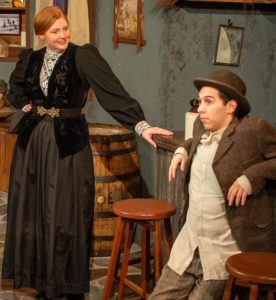
This is a comedy with a deeper meaning attached to it. But the reason that this particular script doesn’t resonate well in the current era is that an offender today would rarely confess to a murder in front of a whole group of citizens. Besides, the average person generally has no desire to harbor a fugitive who deals savage blows to family members, possibly for fear that they might be the next victim. Instead, today’s audience would probably prefer to see such criminals as Christy arrested or thrown in prison or, at least, have their day in court. (Note that nobody ever calls in the sheriff or any type of law enforcement in this play!) In addition, the victim of such a vicious domestic attack today would, at the very least, go to the hospital emergency room immediately afterwards and see a doctor to get stitches or staples. They normally would not travel such a long distance to seek revenge wearing just a bandana to hide a huge bloody gash.
Yet while the story is a dated one, human nature has not fundamentally changed. There are far too many of us who lead everyday lives that might seem blasé or humdrum, so we crave some source of connection with others, often in the form of juicy accounts about their lives. While some accounts might take the form of gossip about family and friends, it is still more likely that we turn to items in the news via broadcast, print, or social media. Popular entertainment may take the form of scandal sheets, tabloids, and television shows that dwell on lurid and unlikely circumstances and sensationalized events, often having to do with celebrities and politicians. So we cannot blame the residents in this story for wanting to add some interest to their lives by repeating shocking rumors that may or may not be true and wanting to be a part of the action, whatever that might be. But if “Playboy of the Western World” were based on a very different type of titillating tale, then the show in its entirety would be more lasting and memorable.
“Playboy of the Western World” is playing through August 14, 2022, at the City Lit Theatre, 1020 W. Bryn Mawr Avenue, in Chicago, on the second floor of the Edgewater Presbyterian Church.
Tickets are $34
Seniors $29
Students and military $12
(All plus applicable fees)
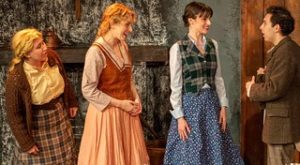 Performance schedule:
Performance schedule:
Fridays and Saturdays – 7:30 p.m.
Sundays – 3:00 p.m.
Mondays August 1 and August 8 – 7:30 p.m.
For information and to purchase tickets, go to https://www.citylit.org/ or phone 773-293-3682.
COVID requirements mean that everybody has to show proof of vaccination and wear a mask covering both the nose and mouth throughout the entire performance. That said, beverages are available and can be taken inside the theatre.
It so happened that the press performance was on the same day as the annual St. Andrew’s Greek Orthodox Church’s Greekfest (admission: $5 adults/$3 seniors). And despite all of the happenings in the neighborhood on that Sunday including the splendid beach weather, I got a miracle parking spot. I guess it’s the “luck of the Irish.” And one of the joys of America is that everybody is Irish—and Greek at the same time!
To see what others are saying, visit www.theatreinchicago.com, go to Review Round-Up and click at “Playboy of the Western World”.


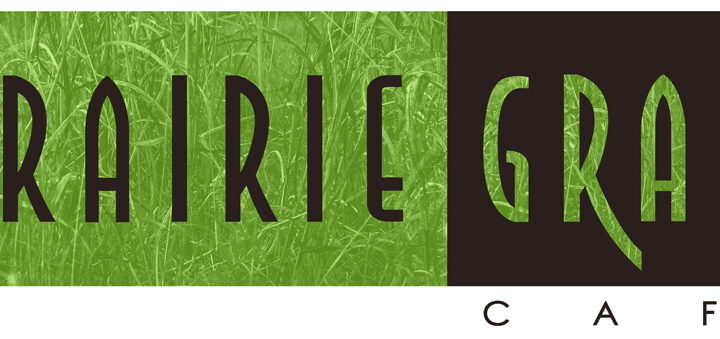

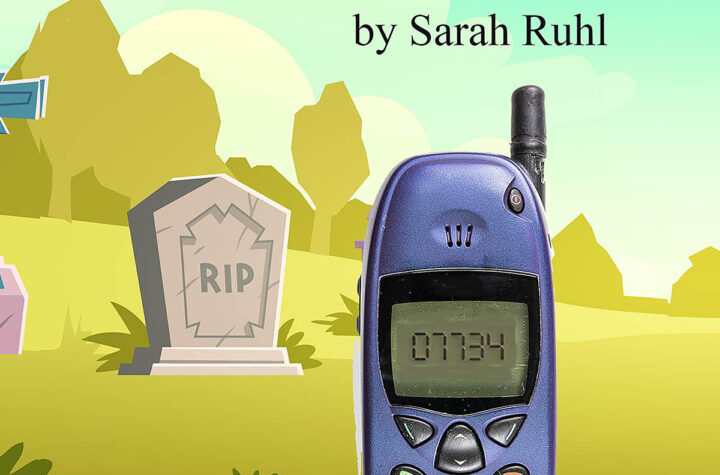

More Stories
“Dead Man’s Cell Phone”
“the distrikt of lake michigun”
“Mother Courage and Her Children” reviewed by Jacob Davis